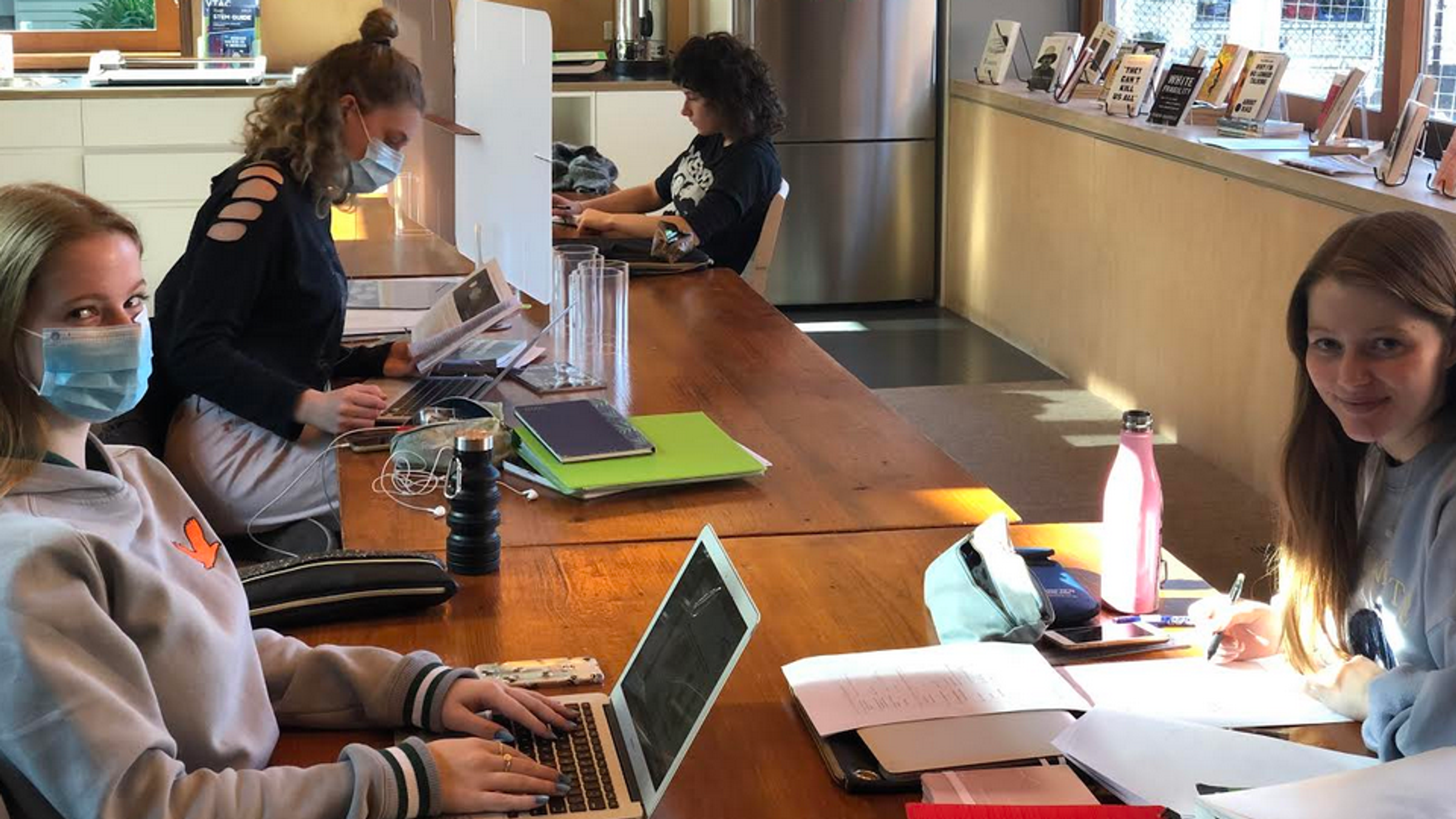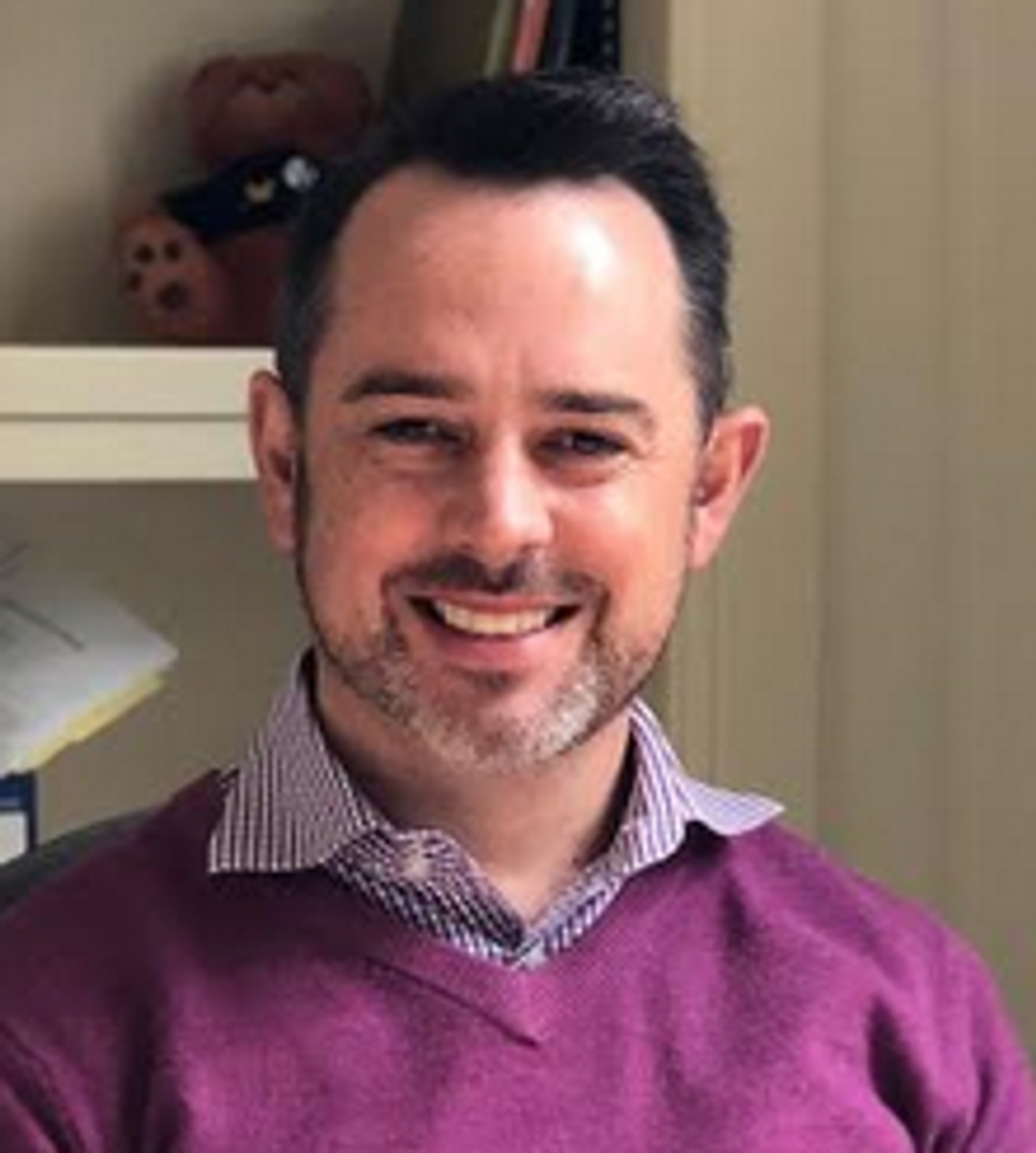Head of Campus
Year 12 students doing private independent study on Wednesday

Head of Campus
Year 12 students doing private independent study on Wednesday
Before we get into the good stuff, please be reminded that we are not able to have adults come onsite unless they are staff or have a previously arranged appointment. Please see the updated Policies for the Use of BK Spaces document for this and other safety precautions to ensure our school community is safe during this period of lockdown.
I know we’ve said this before, and will probably say it again, but I can’t tell you how good it is to have DP students back onsite. While we recognise that some students thrived during online learning, we know there were also significant challenges for most. We look forward to the day when we can welcome all students back onsite, while welcoming the new opportunities for learning that have been hard-won over the past few months.
The purpose of this article is to outline the things we have learned as a community and the ways we are developing our programs in response. Students and parents let us know that, among the hurdles, there were many great things achieved in learning online and many opportunities to continue to grow as we look ahead. We hope it is clear that all staff are striving to make improvements to last term’s programs. Part of this is accomplished by individuals as they work on independent programs, but it is also being achieved collectively, as our goodwill, constructive criticism and imaginations are engaged for wholesale improvement.
When we surveyed students and parents last term, there were some interesting themes that arose from the data and overall there were several key findings:
In the mix of narratives that became apparent in the feedback you so generously provided, these were the four comments that arose again and again. I realise that they won’t fit everyone’s ‘COVID story’ however, and we are always looking to see the nuance, rather than reduce the complexity of our stories to the point where they are too far from our realities.
When the messages start falling into these kinds of regular language patterns, though, we have to start paying attention, being responsive and taking responsibility for change. These changes, aligned with the feedback, aim to achieve three things:
With the little time we have had since the State Government announced the new lockdown period, we have done our best to consult students, parents and staff to make the following changes. We look forward to making further improvements in response to your continued generous feedback.
WEDNESDAY as INDEPENDENT LEARNING DAY
To preserve the developments in student agency, we are trialling a pilot timetable for DP students that allows them to work independently every Wednesday. Students will still have access to their teachers remotely and have set work, however they will not be required to attend classes (onsite or synchronous) for the whole day. They will also still be able to come onsite and work independently or collaboratively as they wish.
These new arrangements are an exciting opportunity for students to eke out the best bits of online learning. They have all the support of their teachers throughout, but they have one day of the week with full control of their day; whether they want to sleep in until 2pm and work through the evening or punch out their work in the morning and spend the afternoon relaxing or immerse themselves without interruption for the whole day. They save time commuting to and from school and can give their learning absolute focus without the incidental distractions.
This day also has the benefit of preparing students for the more independent learning requirements in higher education in a gentle, mindfully transitioned and supportive environment. It will be reviewed at the end of the lockdown period.
CHANGES to the ONLINE LEARNING PLAN: SYNCHRONOUS CLASSES and HELP DESK SESSIONS
In an effort to target more timely communication with students and reduce screen time, we have made changes to the terminology and expectations around the balance between synchronous and asynchronous learning experiences.
We have moved towards the term Synchronous Class to describe one single period per subject per week where all members of the class are expected to be in a video conference at the same time, engaged in the same activity, with webcams turned on. Teachers are expected to make this a more collaborative activity, with instruction resources moved to vodcasts/podcasts/written instructions and allowing time outside this session for student-initiated collaboration. The importance of having visual cues for all members of the class is to enable teachers to assess students via observations, rather than weighty summative assessments; if teachers can see how the MYP Criteria is being met through classroom interactions, there is less reliance on high-pressure tasks like tests, essays and major projects.
While this may not be a radical change from last time, we hope that this clarification creates firmer boundaries around the aim for students not to be online for extended periods of time.
Teachers have developed the term Help Desk sessions to describe times that they will be available for student support; teachers will be at their devices and ready to respond to student-initiated questions. These sessions are times for students to get help and will usually be situated in the asynchronous periods for each subject. Teachers will let students know when and how they can initiate this contact, however it will be expected that students will have access to at least one Help Desk session for each subject each week. This arrangement is to ensure that no student is frustrated and unsupported in their learning, unable to receive support when they need it, as well as making sure that all the other students do not need to be online and listening to explanations that are irrelevant to their needs.
So, those are the three significant changes we have made for this term’s learning. It is my hope that you know how much we value your feedback, especially when it comes to being able to understand your experience. The more I get to know our families, the more proud I am to work at a school of profound resilience and idealistic moral and cultural strength.
It is also my hope that you know how determined we are to make sure students get through this time securely and with increased capacity.


Dan Symons
Head of Campus